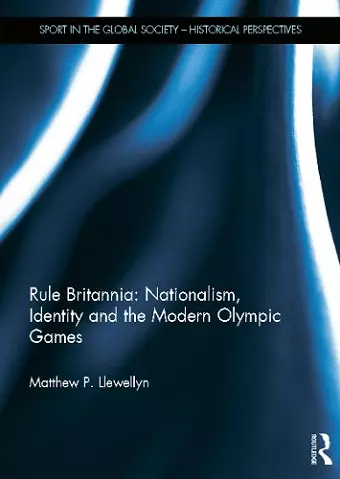Rule Britannia: Nationalism, Identity and the Modern Olympic Games
Format:Hardback
Publisher:Taylor & Francis Ltd
Published:5th Dec '11
Currently unavailable, and unfortunately no date known when it will be back
This hardback is available in another edition too:
- Paperback£37.79was £41.99(9781032926360)

On 6 July 2005, the International Olympic Committee awarded the 2012 summer Olympic Games to the city of London, opening a new chapter in Great Britain’s rich Olympic history. Despite the prospect of hosting the summer Games for the third time since Pierre de Coubertin’s 1894 revival of the Olympic movement, the historical roots of British Olympism have received limited scholarly attention. With the conclusion of the 2008 Beijing Olympics and the passing of the baton to London, Rule Britannia remedies that oversight.
This book uncovers Britain’s early Olympic involvement, revealing how the British public, media, and leading governmental officials were strongly opposed to international Olympic competition. It explores how the British Olympic Association focused on three main factors in the midst of widespread national opposition: it embraced early Olympian spectacles as a platform for maintaining a sporting union with Ireland, it fostered a greater sense of imperial identity with Britain’s white dominions, and it undertook an ambitious policy of athletic specialization designed to reverse the nation’s waning fortunes in international sport.
This book was previously published as a special issue of International Journal of the History of Sport.
Britain may have taught the world to play but, as Matthew Llewellyn argues in this excellent study, by the 1930s it had become a peripheral member of the international sporting community. One aspect of this was the reluctance of the British to follow other European nations and use the Olympic Games as a vehicle for the promotion of nationalism through sport. In this revisionist history, Llewellyn clearly demonstrates that the British affinity for the Olympics is a very recent phenomenon. He shows, via detailed analysis of archival and newspaper sources, that from its origins the British Olympic Association struggled unsuccessfully to interest either the government or the British public in the Olympic movement. This work will be a healthy corrective to the historical hyperbole associated with the 2012 London Olympics.
Wray Vamplew, Department of Sports Studies, Stirling University, UK
Britain’s success in obtaining the 2012 Summer Olympic Games reemphasized its own belief that it had been a key player in the early history of the Olympic movement. Yet as Matt Llewellyn shows, in this fascinating myth-challenging and revisionist study, the reverse was true. Llewellyn explores the reasons for the longstanding British disinterest right up to 1939, and sets them into context, with an impressive depth and breadth of scholarly enquiry and sophisticated analysis. This is a work of value to all those with an interest in the history of sport and the Olympics, not just in the United Kingdom.
Mike Huggins, University of Cumbria, UK
ISBN: 9780415663908
Dimensions: unknown
Weight: 600g
230 pages